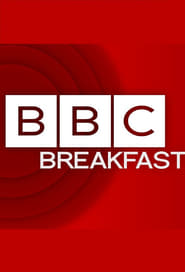Best News TV Series - Page 78
-
Thames News
0000
Thames News
0000
Thames News was the flagship regional news programme of Thames Television, serving the Greater London region and broadcast on weekdays from 12 September 1977 to 31 December 1992. The news service was produced and broadcast from Thames TV's headquarters at Euston Road in north-west London and during its last few years in operation, from district newsrooms in Dartford in Kent, Guildford in Surrey and Watford in Hertfordshire. -
60 Minutes
0000
60 Minutes
0000
60 Minutes is the name of a television newsmagazine show previously broadcast in New Zealand on TV3. The show began in New Zealand in 1989 based on an American programme by the same name. The programme is to broadcast on Prime TV from 2013 and will be hosted by Charlotte Bellis, weekend anchor of Prime News: First at 5.30, will host 60 Minutes for the network alongside her news duties. The broadcaster of 60 Minutes has changed twice during the 1990s. It was one of TV3's flagship programmes when TV3 went to air in 1989. Then in 1992, TVNZ won the rights to the programme. After being shown on TV1 from 1993 to 2002, TVNZ decided not to renew the rights the show from CBS, and the rights were reacquired by TV3. Following this, there was a fight over the www.60minutes.co.nz domain, which for a short time, redirected to the site on TVNZ's replacement Sunday. Currently, the domain redirects to the www.cbs.com website. -
CTV National News
2021
star 6CTV National News is CTV's flagship newscast, which airs at 11:00 p.m. local time on the CTV stations across Canada, and live at 10:00pm ET, with repeats hourly up until 2 a.m. ET on CTV News Channel, CTV's 24-hour cable news television channel, and the previous day's can be seen on the Internet. The current anchors are Omar Sachedina on weekdays, and Heather Butts on weekends. The program is also broadcast in High-Definition. -
Imus in the Morning
0000
Imus in the Morning
0000
Imus in the Morning is an American radio show hosted by Don Imus on Cumulus Media Networks, and simulcast for television on Fox Business Network. The show originated locally on WNBC radio in New York City in December 1971. In October 1988 the show moved to WFAN when that radio station took over WNBC's dial position following an ownership change. It was later syndicated to 60 other stations across the country by Westwood One, a division of CBS Radio, airing weekdays from 5:30 to 10 am Eastern time. Beginning September 3, 1996, the 6 to 9 am portion was simulcast on the cable television network MSNBC. The show had been broadcast almost every weekday morning for 25 years on radio and 11 years on MSNBC until it was canceled on April 12, 2007 due to controversial comments made on the April 4, 2007 broadcast. The remark resulted in the program's cancellation the following week. The Imus in the Morning program returned to the morning drive on New York radio station WABC on December 3, 2007. WABC is the flagship station -
Europe This Week
0000
Europe This Week
0000
Europe This Week is a business news show aired on CNBC Europe and on CNBC World in the US, co-presented by Guy Johnson and Louisa Bojesen, from 6pm to 6:30pm CET on Fridays. The programme, presented from CNBC Europe's London studios, examines stock markets and the economy in Europe during the past week, and sets the agenda for the coming week. Occasionally, special editions of the programme are presented on location from the site of EU summits and major elections. Europe This Week is re-aired as part of weekend programming on CNBC Europe and the CNBC World channel in the United States. -
Dyke TV
1993
Dyke TV
1993
Dyke TV was created with the intention to provide empowerment for lesbians and increase visibility of lesbian issues, culture and community. -
Je vous dérange
2025
Je vous dérange
2025
-
Face à face
2022
Face à face
2022
-
What’s Going On
2020
What’s Going On
2020
A weekly overview of events happening in Russia and the world! From the U.S. election results to the outcome of the war in Karabakh, European sanctions, COVID-19 statistics, journalist detentions, new laws, and much more! -
Znovu 21
2021
Znovu 21
2021
-
Ce Matin!
2010
Ce Matin!
2010
A morning information program covering a variety of topics, including news, weather, and entertainment, with a focus on local content from the Kansai region. -
Última Marcha
2022
Última Marcha
2022
-
BBC One Breakfast
0000
-
Europamagazin
2016
Europamagazin
2016
-
Latin American Music Awards
2015
The Latin American Music Awards is an annual American music award that is presented by Telemundo. It is the Spanish-language counterpart of the American Music Awards produced by the Dick Clark Productions. -
Connexió Barcelona
0000
Connexió Barcelona
0000
-
Japan 7 days
0000
Japan 7 days
0000
-
80erne tur retur
2012
80erne tur retur
2012








